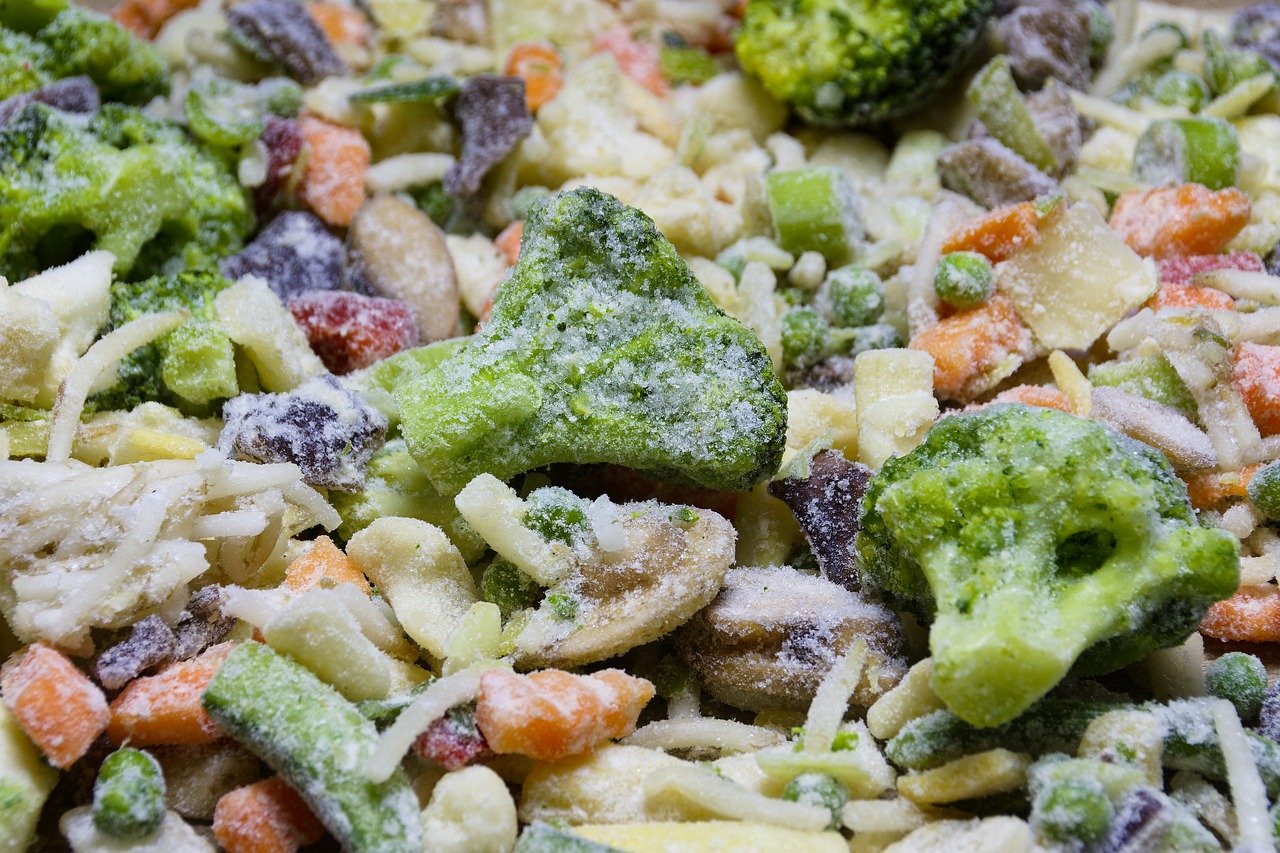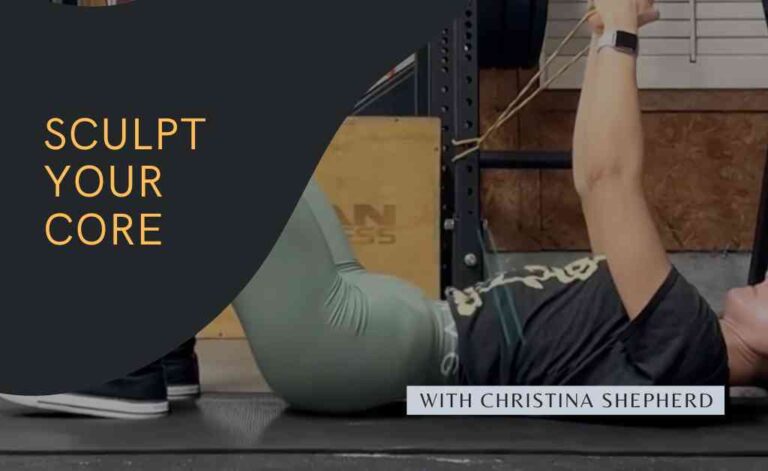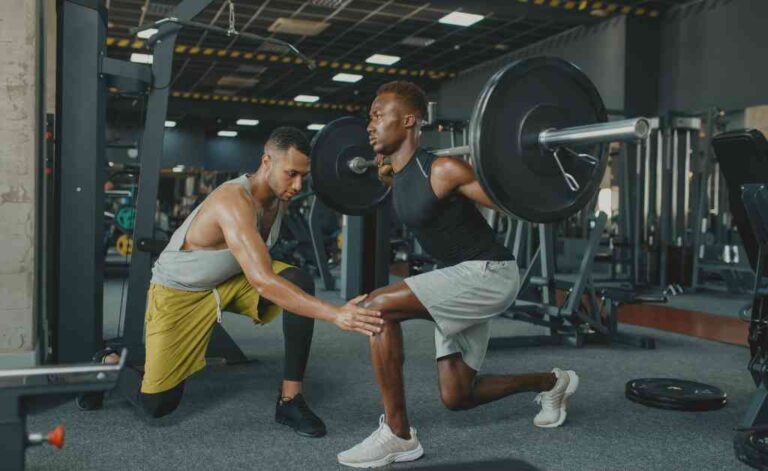Vegetables are an important part of a healthy diet. They have an extremely high number of health benefits to nourish our bodies. They are something we should try to eat as much as possible. Especially if you are into fitness at any level.
The problem is that it’s hard to keep a supply of fresh vegetables on hand because they can go bad fairly quickly. That is where frozen vegetables come into play. The only problem is that multiple people have told me that frozen vegetables are “not that good for you.”
Their reasoning is usually that they don’t have as many nutrients as fresh vegetables or some phrases like “fresh is best.”
While i trust the opinion of most people I interact with, I understand that a lot of things become “facts” simply because they sound correct in our heads. I decided to interview a Registered Dietitian to get the official word on frozen vegetables.
I had the opportunity to speak with Emily Bogaudo about frozen vegetables. Emily is a Registered Dietitian and Certified Personal Trainer. She works as an online nutrition coach and trainer for people who have health, fitness, and body composition goals. In addition to online coaching, Emily works in person at Two Title Boxing Clubs in her local area.
Frozen Vegetables Interview w/ Dietitian Emily Bogaudo
Question: I always hear people say frozen vegetables are bad. Should I avoid eating them?
“I think people think all frozen foods are “bad” because generally a lot of freezer foods are convenience foods like pizza, hot pockets, chicken nuggets, etc. Truth is, frozen vegetables are just as good and sometimes even better than fresh! Not only that, but they are usually more affordable, easier to cook, and they don’t go bad quickly and get wasted like fresh veggies.
Check the nutrition label to see if it is just vegetables or if it has other ingredients added to it, especially if you are someone who needs to watch their sodium intake.“
Question: What about the microwave aspect of cooking them? Does that kill all the nutrients?
“Pretty much any type of cooking can “kill” some nutrients because of the heat, but it also can make certain nutrients more easily absorbed by our bodies. Boiling your veggies is actually worse than microwaving in terms of nutrients leaching out. The more water you cook it in, the more the water-soluble vitamins can leach out. Generally, a shorter cooking time and less water is better. And let’s be honest, not using the microwave just isn’t realistic!“
Question: Are there any vegetables that are more freezer friendly?
“Some vegetables get kind of soggy when frozen- like zucchini, green beans, and asparagus. Carrots, cauliflower, brussels sprouts, and broccoli freeze well. Frozen spinach is a good option to add to smoothies.“
Question: How long can I safely store frozen vegetable for?
“Frozen vegetables will eventually start losing nutrients during storage, at about one year. That doesn’t mean they wouldn’t be safe to still eat though. You should rotate them out, using the ones that have been in their the longest first. Check to see what you have shoved in the back of the freezer!”
Question: What is your favorite frozen vegetable taste-wise and how do you cook it?
“My go-to frozen vegetables are probably the basics- broccoli and cauliflower. You can either just buy the ones that come in the microwave-friendly steamer bags, or you can buy in bulk and steam them yourself by putting them in a microwave-safe bowl with a tiny bit of water and put plate over the top to lock in the steam. I posted that on my Instagram story once and people were like, “WHAT?! Why didn’t I think of that?”
I also love frozen shelled edamame (technically a bean). I just let the bag thaw in the fridge and eat them salted as a snack or add to meals for some extra protein.“
Question: What inspired you to become a registered dietitian?
“I used to be overweight and pretty unhealthy. When I was younger, every time I went to the doctors he would tell my mom that I needed to lose weight. I didn’t care about nutrition at all until my senior year of high school when I decided I wanted to start working out and making changes with my nutrition. I made so many mistakes along the way, and as I learned more I wanted to be able to help others skip over those mistakes.
Nutrition education is really lacking in our school system and unfortunately, there is so much misinformation out there that people don’t know what is true. I am happy I can be someone on social media that people trust and know that what I post is evidence-based and backed with education and experience.“
Question: Is there anything else you would like our audience to know in regards to frozen vegetables?
“The reason why frozen vegetables can be even better than fresh bought from the store is that frozen vegetables are typically picked at their peak ripeness which is also when they have the most nutrients and flavor. Then they are flash-frozen, and the nutrients are preserved for much longer.
Fresh vegetables are typically picked BEFORE ripe and then they are transported for weeks to their destination, stored in the back of the store, then finally reach the shelves where you will buy them. During that transit time, they lose nutrients. They are still great to eat! But this is why we shouldn’t discriminate against frozen vegetables.
The best-case scenario is that you can buy local produce (ie. farmers markets) or grow your own. If you compare the taste of a tomato picked at its peak of ripeness and eaten right away to a store-bought tomato you will see a huge difference.“
To wrap it up
In this case I am very glad I questioned the logic that made sense in my head. This is very valuable information from Emily Bogaudo. I am excited to stock up on frozen vegetables and know I am still getting some quality nutrients out of them going forward.
If you would like more information on nutrition, be sure to check out the podcast called Dietitian Table Talks hosted by Emily herself.





